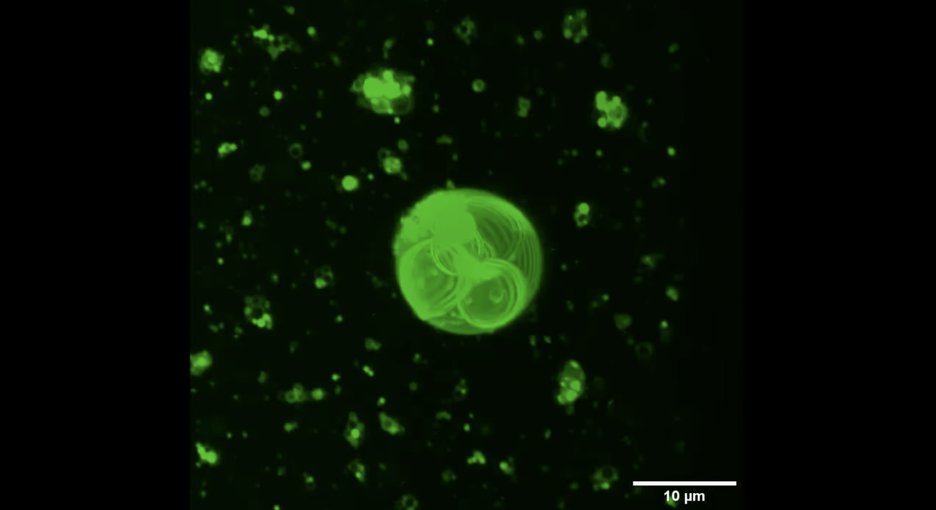
June 7, 2024
Research Highlight
Forming a Double Chained Protocell

Vesicles are shown within the protocell-like structure.Image credit: Scripps Research.
NASA-supported scientists have described one pathway by which simple vesicles may have transitioned to more stable, double chained protocells on the early Earth. Protocells are self-organizing, spherical vesicles made out of fats, and are thought to be precursors to modern day cells. The formation of protocells with double chains is important because this type of structure is more stable for harboring a diverse range of chemical reactions inside.
The study looked at how phosphates could have been involved in the formation of early phospholipid-protocells. The researchers studied phosphorylation, a chemical process where phosphate groups are added to a molecule. This process could have led to phospholipids which, unlike other fats, are able to form double chained protocells.
The team suspected that the process of phosphorylation could have occurred on Earth earlier than previously thought.
The scientists made three mixtures of chemicals that they believed could have created vesicles on the early Earth, and then observed how the mixtures reacted under various conditions. What they found was that vesicles did form and were able to transition from simple fatty acids to phospholipids during the experiments. In fact, the team uncovered a way by which vesicles could form with different tolerances to conditions like pH and the presence of metal ions.
A press release concerning the study is available from Scripps Research.
The study, “Experimentally modeling the emergence of prebiotically plausible phospholipid vesicles,” was published in the journal Chem.